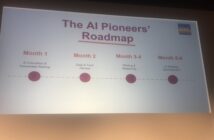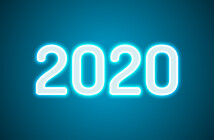Neuroscience research is revealing the impact lifestyle has on learning, according to Dr Paul Howard-Jones, reader in neuroscience and education at the University of Bristol.
Delivering the first webinar in the CIPD’s Steady State to Ready State research programme, held in conjunction with the CIPD Linkedin Members Group, Howard-Jones explained how coffee, sleep and video games affect our ability to learn.
Caffeine is a suppressant and blocks the action of our sleep/awake chemical adenosine. The effect is to keep us more awake. But the body quickly counter regulates so you start functioning below your baseline, getting back to your baseline only when you have had more caffeine.
Jones said that in the morning non-coffee drinkers are already performing better than coffee drinkers in terms of cognitive function. Once you have had coffee you are back to baseline cognitive function but the effects quickly wear off, he said.
“Coffee lovers perform less well unless they have their dose.”
Constant consumers of coffee operate below their baseline most of the time, underfunctioning as a result of caffeine.
He told listeners that caffeine is also linked to sleepiness – abstaining can make us more alert and receptive for learning. Poor quality sleep also disrupts memory consolidation.
Howard-Jones said that sleep is very important for learning. It is not just about rest to be able to learn the next day, he said, it also helps consolidate memory for what you have learned through the day.
“Sleep gives our brains the energy and wakefulness to learn, to retain learning and enables reflection and for us to gain understanding.”
Howard-Jones said that if you learned something in the morning and were tested in the evening you would not do as well as if you had learned in evening and were tested the next morning. The hippocampus recycles and represents to your cortex what you learned through the day, he said.
In the lab, you can see neural patterns activated in the day being used again at night, he said. Sleep is critical to memory and if our sleep is disrupted our memory will work less well.
Howard-Jones also said that working on laptops and tablets late at night affects our sleep. Sleep cycles rely on the production of melatonin but late working on bright screens can inhibit melatonin production. He said TVs were less off an issue but that laptops and tablets were far more disruptive.
‘Sleep is vital rest for the brain and body and helps us learn’.
Discussing the impact of video games on learning, Howard-Jones said that uncertain rewards stimulate the reward system because dopamine, the chemical released in the the brain when we are rewarded, accelerates connections in the brain.
Highlighting this point, he said cadet combat pilots in the Israeli air force who had 10 hours of non related video training had better flying skills than those who had no video gaming experience. Cadet raining now involves video gaming, he said.
And in a study of laparoscopic surgeons, those with a history of playing video games made 37% less errors in tests of their surgical skills. Plenty of other studies show that playing Wii games improves laparoscopic skills, he said.
Games are good for learning because they provide a rapid schedule of uncertain rewards (you don’t know if you are going to get them or not) by stimulating the brain’s reward systems more effectively than the rewards we get in normal learning experiences. Dopamine released when you are rewarded accelerates the rate you make connections in the brain.
Laboratory based games have shown to increase working memory ability – which is our biggest bottleneck when it comes to learning new things, Howard-Jones said. “Amazingly, 30 minutes of gaming a day for 19 days have been shown to improve fluid intelligence of young adults – the best predictor we have of academic and professional success.”
Despite the big and rapid advances in neuroscience research, he said it was a relatively young discipline and cautioned listeners to check any neuroscience research findings including where is it published, who has published and what it tells us we didn’t already know.
He summarised the webinar with the following take-aways for L&D profesionals.
- Concepts from neuroscience will increasingly impact on approaches taken to L&D
- A basic understanding of neuroscience can help protect against proliferating neuromyths that undermine the effectiveness of L&D
- Neuroscience research should be seen as an exciting new source of evidence to be used alongside other perspectives in the ongoing development and evaluation of new approaches to L&D
- In the future the greatest impact of advances in neuroscience on L&D may arise in combination with advances in digital technology.
The webinar recording is available here.



